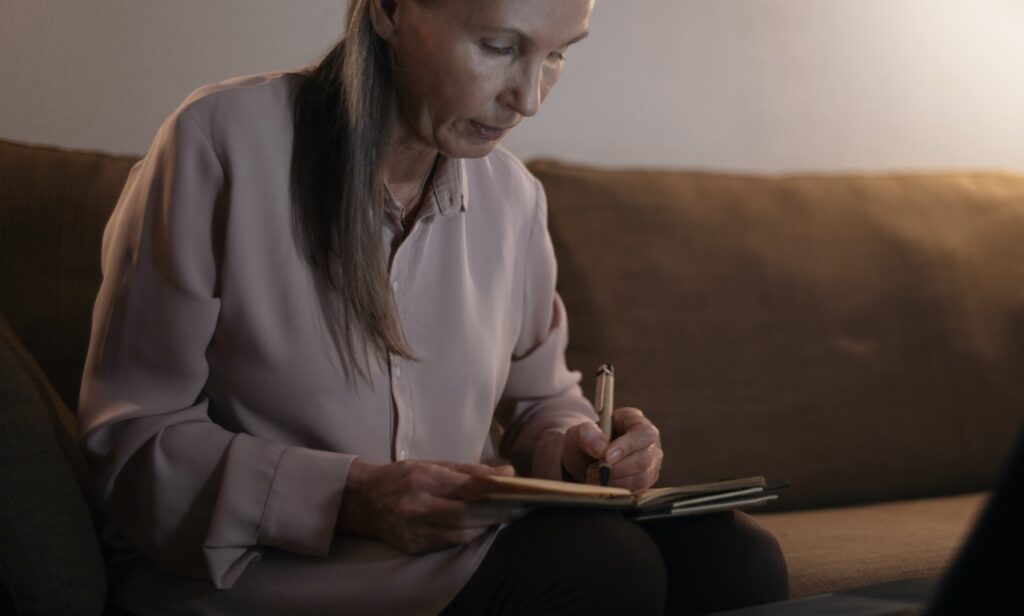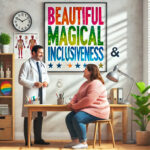‘I’m so glad I found you!’ How story-sharing helps recovery from eating disorders

‘I’m so glad I found you!’ How story-sharing helps recovery from eating disorders
Email from Nancy (USA): I have been listening to your interview on the End Eating Disorders podcast and had to write. What a beautiful and inspirational message you share! There is so much in your story to which I can relate. I have kept saying, Yes! Yes! every few minutes. You are amazing!
Nancy, whose email is titled, “I’m so glad I found you!” shares her story …
Two months before my 65th birthday, I was diagnosed with an eating disorder, anorexia nervosa. To this day, I’m not sure why I reached out for help at that time. Living in isolation during the early days of the COVID-19 pandemic should have been stressful enough for the eating disorder to demand that it stay in control, but instead, I began to see it for what it was—a waste of precious energy and a drain on my life. I began virtual outpatient treatment at that time and listened to many podcasts that supplemented my therapy sessions.
Recently, while searching for a new podcast, I discovered a Millie Thomas interview with Dr June Alexander and immediately felt as though I’d stumbled upon a kindred spirit. June had suffered from an eating disorder for over 40 years. So had I! June’s anorexia began at age 11. So did mine! I had to find out more about this woman with whom I had so much in common, even though we live a world apart. While family and friends have been incredibly supportive, the immediate connection with someone who has experienced the same thoughts and feelings is truly powerful.
The seeds for my eating disorder were planted when I was 11 years old. My friend and I were standing in a telephone booth as she made a call. Some boys I didn’t know began riding their bicycles around the phone booth, shouting insults at us about our bodies. Something changed in that moment that was forever burned in my psyche. I instantly assumed the shame they hurled at me and have carried it with me ever since.
I was, and still am, a rule follower
I never technically starved myself or became as emaciated as some people suffering from anorexia do, which I am convinced helped me fly under the radar for decades. I also never acknowledged that I had a problem. In my mind, I was just “normal,” trying to do what society and the media dictated. What we now call diet culture began to influence me from all sides—teen magazines, television shows and seeing adult women go on diets—when I was at a very impressionable age. I soaked up everything like a thirsty sponge.
I was, and still am, a rule follower, which led me to become somewhat obsessive about following diets or conforming to the messages society told me. Over the years, if I lost weight, I was praised by everyone, including my doctors, so I was convinced that I was fine. That became my mantra and the standard by which I measured my health. Unless I was told by a doctor that I was too thin, I was nottoo thin, but could stand to lose a few more pounds. I had to keep my weight under control.
I was in denial that anything was wrong
The only time I gave myself permission to eat “normally” was when I was pregnant. I was able to justify my hunger and my need to eat because I was feeding the baby, not myself. Once the baby was born, I felt I no longer deserved that extra care and began my quest to lose the baby weight. It’s heartbreaking to think about it now. There is so much pressure on women to ‘lose the baby weight’ and ‘get their figures back’ and it saps the joy out of one of the most precious times in a woman’s life.
After I was done having babies, in my mind, there was no excuse to not be in control of my weight. The eating disorder behaviors waxed and waned while I raised my children, but they were still there, simmering under the surface. I was determined to set a good example for my daughters, so I didn’t talk about “dieting,” but rather about being “healthy.” I never restricted what they ate and had a wide variety of foods in the house, both healthy food and junk food. The only one I restricted was myself and I came up with creative and sneaky ways to do it, including skipping meals, getting up extremely early to exercise and taking over-the-counter appetite suppressants to name a few. I never wanted anyone to know I did these things, and even as I did them, I was in denial that anything was wrong.
Today my journal is a place for exploring life instead of pleasing the eating disorder
I kept a journal during this long time with my eating disorder, primarily to keep track of my weight each day and to remind myself to stay on the straight and narrow. From the time I was a teenager, I had a number in my head for my suitable weight. Never mind that I had become a grown woman who had had multiple pregnancies, was growing older and eventually was on the cusp of menopause.
To me, I needed to stay at that number and even below it, if possible, no matter my age. The pages of my journal were littered with harsh words if my weight was “too high,” and praise if the number pleased me. Of course, if I didn’t like what the scale told me, the rest of my day would be ruined. One might ask why I put myself through such torture and the answer is, I had to. The eating disorder was calling the shots and I had to comply to stay in control. It is truly difficult to grasp unless you’ve experienced it. During recovery, my journal became a kinder, safer space, especially because I stopped the daily weigh-ins. Instead, it has become my refuge, a place where I practice self-compassion and make sense of this new way that I live my life.
A thin person is no healthier or more worthy of dignity and respect than a person in a larger body
There’s a saying, that you don’t know what you don’t know, and that is certainly the case with me. The hold that diet culture and weight bias has had on me for most of my life is staggering. Until my recovery, I hadn’t been aware of how insidious the lies and myths are surrounding weight and health. I now know that a person’s size is not a measure of anything and should not be quantified in any way. A thin person is no healthier or more worthy of dignity and respect than a person in a larger body. I’ve also learned that eating disorders exist in people of all shapes and sizes and ages. Complimenting someone on their weight loss could further cement the beginnings of an eating disorder, making a potential illness even worse.
It is never too late to take that first step toward healing
Before my recovery, the person I withheld respect and love from was myself. Now I know that it was the eating disorder telling me that I didn’t deserve those things. Now I know that I deserve love and respect as much as the next person no matter how my body looks, everyone does. I am trying to do better now that I know better. It is never too late to take that first step toward healing. It’s not easy and sometimes it may feel impossible, but it’s worth it. Everyone is worth it.





